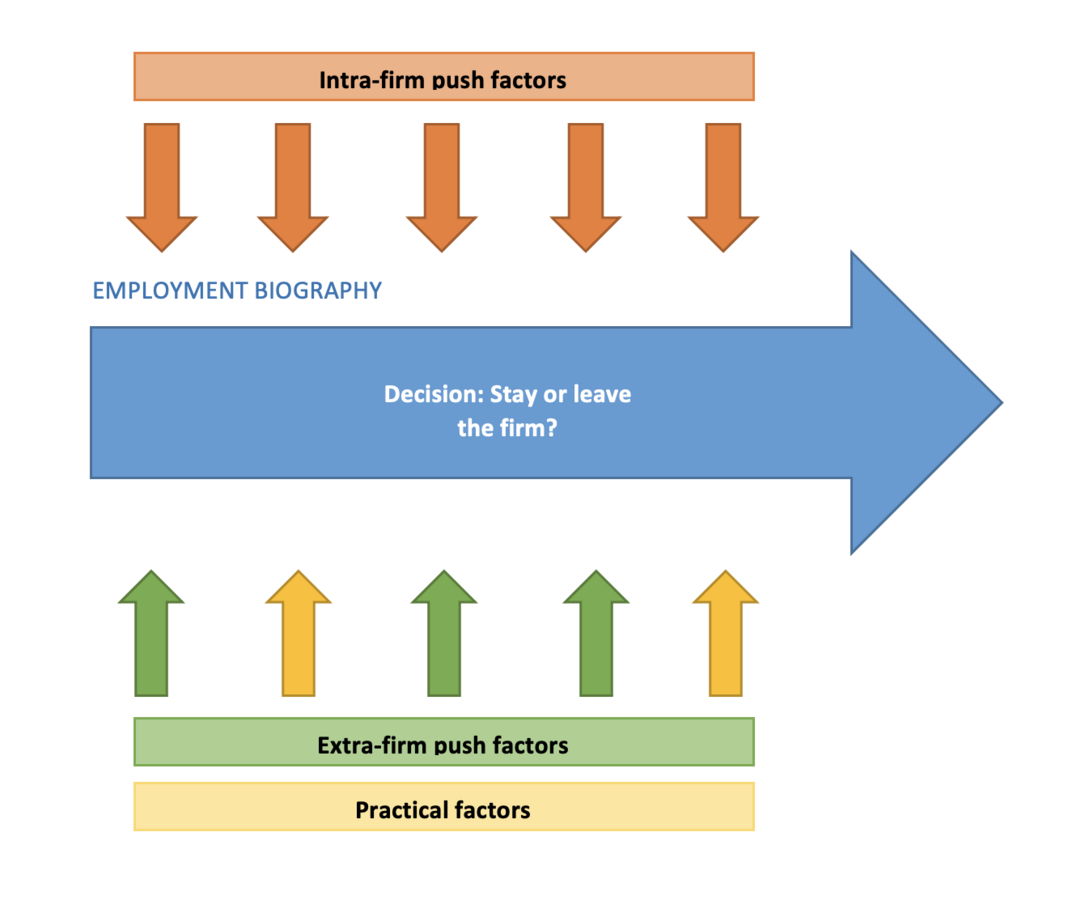Why do workers in Ghana change their jobs? Which economic, sociocultural, and other aspects are the determiners? The project investigates the forms and causes of labour turnover in the industrial clusters in Ghana. Our empirical focus includes the food processing sector, textile, automobile manufacturing and other fields. These are part of the initiative “Decent Work for a Just Transition” and the “Marshall Plan with Africa”, which emerged from the G20 Africa Partnership, and are funded by the German Federal Ministry for Economic Cooperation and Development.
In this project, we explore the social conditions and cultural contexts that shape people’s choices around income generation, employment, and absenteeism and identify the factors that influence the way people navigate through uncertain economic landscapes. We also investigate the competing economic demands and social expectations linked to income generation. In addition, the project proposes measures to counteract employees’ frequent job change and absence. The project thus pursues two objectives. First, it enriches the sociological understanding about the forms of fluctuation in employment biographies and absenteeism in contemporary African societies. It contributes to the explanations and to the sociological theory formation about the relationship between employment biographies, life courses and labour market structures. Second, it supports the efforts of the special initiative “Decent Work for a Just Transition” to improve vocational training and employment conditions in Ghana within the framework of the G20 Compact with Africa. The project is based on a qualitative methodology involving open-ended interviews and group discussions with employees, employers, and managers. The results of the research provide practical guidelines for actions that can be used to reduce fluctuation and absenteeism, subsequent economic costs, and other negative social impacts. Similarly, the results of the project aim to strengthen the sustainable economic development processes in African partner countries as a whole.
Research Profile
The project explores the forms and causes of fluctuation of labour involved in the Special Initiative Training and Job Creation in the food processing, textiles, automotive and other sectors in Ghana. The project examines the reasons for job abandonment and absenteeism. It also proposes measures to counteract the frequent turnover of employees.
In this way, the project pursues two goals: First of all, it contributes to a better sociological understanding of the forms of turnover and absenteeism in contemporary African societies. It contributes to their explanation and thus to sociological theorizing about the relationship between life courses and labour market structures. Secondly, it supports the efforts of the Special Initiative "Decent Work for a Just Transition" to build up better training and employment conditions in selected African countries within the framework of the G20 "Compact with Africa".
To this end, the project develops proposals for action based on empirical research. The results of the research will provide practical guidelines for action to reduce fluctuation and absenteeism, their economic consequential costs and other negative social effects. Moreover, they are supposed to strengthen sustainable economic development processes in African partner countries as a whole.
The research project is based on a dynamic and multilevel model of fluctuation and absenteeism, which will be applied in the project and subsequently used to develop proposals for practical development cooperation measures.
The basic assumption is that fluctuation and absenteeism in their various forms are shaped by social and cultural conditions. These social and cultural frameworks have a general impact on the level of employment turnover, resignation, and absenteeism in the workplace.
These social and cultural conditions impact three groups of factors:
- Intra-firm push factors. Push factors include human resource management practices, co-determination opportunities, pay and promotion opportunities. The more negative these aspects are perceived by employees, the stronger the tendency to absentism.
- Extra-firm pull factors. These consist of (i) the complex of solidarity norms and support obligations in the context of family and kinship, (ii) solidarity obligations to other actors in higher positions (local politicians, chiefs and other "patrons"), and (iii) a socialization (so-called "piece jobs") and perception of interests oriented toward short-term but supposedly lucrative employment opportunities. In addition, there are (iv) sociocultural influences such as gender-specific preferences for certain industries and different life plans, which make companies appear more or less attractive.
- Practical factors related to the extra-firm work environment such as safety on the way to work and infrastructural conditions that determine costs and time spent traveling to work.
These assumptions yield a phase model of absenteeism and termination decisions.
Based on this model, we further assume that absenteeism propensities, termination decisions and the resulting employment turnover are subject to a double social embedding: namely, in the intra-firm contexts on the one hand, and extra-firm social forces and contexts on the other.
In addition, social and cultural conditions do not influence all employees in the same way, but have a selective effect. The high degree of employment insecurity means that the majority of the population in African countries pursue several activities and also change them constantly, depending on the level of income. At different stages of working life, different norms become effective, related to biographical experiences and expectations. Younger individuals and labour market entrants possess different orientations and have different expectations of workplace employment than older workers. Members of different age groups will therefore also have different perceptions of the opportunities and risks associated with leaving employment. Younger people and those just entering the labour market are also more likely to drop out of employment due to disappointed expectations because they have less experience with gainful employment.
Moreover, social and cultural conditions have a gender-specific effect, and gainful employment itself is already gender-differentiated. Personnel hierarchies in companies often relegate women to lower ranks. Men's domestic and general claim to leadership in African societies typically also conflicts with following instructions from female superiors. Issues of commuting safety and distance between home and work also have gender implications and thus have a gender-differential effect on employment turnover.
The theoretical background of the study combines empirical findings from African studies with approaches from the sociology of work and research on employment biographies. Complementing existing studies that examine factors such as employee satisfaction and work climate, the project looks at other factors in the sociocultural context of work patterns and life histories in Ghana. Here, work is understood as a complex that goes beyond mere economic activity. Beyond the dichotomy of formal and informal activities, the project considers particularities such as multiple sources of income, the relationship between work and family, or specific upward mobility strategies. A biographical perspective is particularly appropriate for the study, as it allows for a good examination of medium- and long-term influences, decisions made at key points in the life course, or how unemployment and underemployment are dealt with. This helps to identify push and pull factors that are responsible for or counteract fluctuation and absenteeism.
The project is based on a mixed-methods approach that combines quantitative methods of descriptive statistics with qualitative analyses aimed at uncovering patterns and reasons for turnover and absenteeism. Data collection combines focus group interviews, biographical interviews, and semi-standardized guided interviews. The target groups are trainees, (former as well as current) employees and managers of the companies located in the context of the cluster. The continuous exchange with Ghanaian and German partners in science and development cooperation contributes to the integration of different perspectives into the analysis. Another method are workshops with several stakeholders, in which the project members work together with employees and managers of companies, representatives of vocational training institutions and actors from development cooperation to identify barriers to retention and develop measures to reduce them. The results contribute to derive concrete measures that are communicated via needs-oriented

